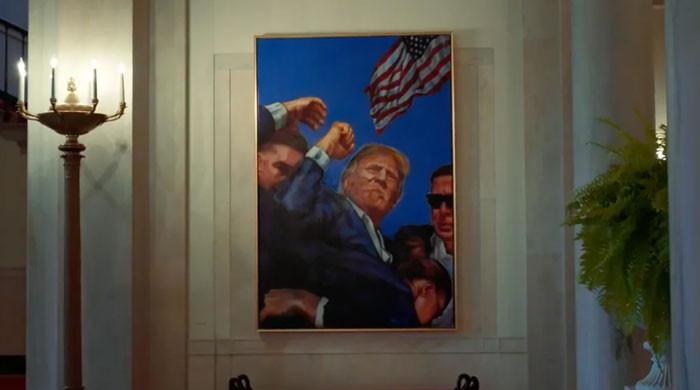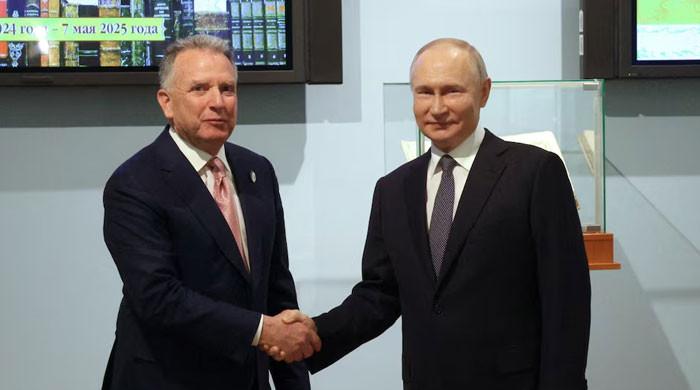Cinematic diplomacy: Secretly produced Iran-Israel judo joint venture 'Tatami' locks global acclaim
Iran does not recognise Israel's right to exist and has banned its athletes from competing against Israelis
September 04, 2023

The first project co-directed by Iranian and Israeli filmmakers had to be shot in secret to avoid any intervention from Tehran, directors Zar Amir Ebrahimi and Guy Nattiv confirmed.
"Tatami", a tense thriller centred on a world judo championship, got its world premiere at the Venice Film Festival at the weekend, receiving a standing ovation.
The film takes place over the course of a single day of competition as an Iranian judoka champion, played by Farsi-speaking US actress Arienne Mandi, is ordered to fake an injury to avoid a possible match-up with an Israeli competitor.
Amir Ebrahimi and Nattiv shot the movie in Georgia, a country Iranians can easily visit. They stayed in separate hotels, spoke English and did not let on that they were making such a politically charged film.
"I knew there are many Iranians there, so we were trying to keep it calm and secret," said Amir Ebrahimi, who is an award-winning actress and also stars in the film, playing the judoka's increasingly terrified trainer.
"We were undercover. We knew it was a dangerous thing," said Nattiv, whose previous movie "Golda" premiered at this year's Berlin Film Festival.
Iran does not recognise Israel's right to exist and has banned its athletes from competing against Israelis, reported Reuters.
Since 1979, when Iran's new Islamic administration took control, ties between Iran and Israel have mostly been on the decline.
In this worldview, Zionism is viewed as a kind of imperialism, and Israel is seen as a colonial outpost of the West. Many Arab states also disputed Israel's legitimacy to exist as a Jewish state because of the Palestinian plight.
But as time has gone on, Israel has failed to reach a deal with the Palestinians, however, an increasing number of Arab nations have normalised relations with it over the years.
In an incident that inspired "Tatami", the International Judo Federation in 2021 gave Iran a four-year ban for pressuring one of its fighters not to face an Israeli.
Amir Ebrahimi, who won the best actress award at Cannes in 2022 for "Holy Spider", fled Iran in 2008 for fear of imprisonment and lashings after a private video of her was leaked.
She said she had to take time to think through the possible consequences before accepting Nattiv's offer to make the film.
"What I have learnt about the Iranian government is that as long as you are afraid they can arrest you, they can kill you, they can make trouble around you. But as long as you are not afraid ... it is going to be fine," she said.
The film was shot in black and white, using a tight, 4:3 format, like for old television programmes.
"These women are living in a black and white world. There are no colours. The box is the claustrophobic world they live in. That is the one thing they want to break. They want their freedom," Nattiv said.
Children growing up in Iran were made to fear Israel as an implacable enemy, Amir Ebrahimi said - something Nattiv said was also happening in his own homeland, with Iran portrayed as an existential threat.
Nattiv revealed he had helped Amir Ebrahimi pay a clandestine visit to Israel, something that Tehran absolutely forbids for its citizens.
"I loved it. We could be from the same nation, the same family, we are the same," said Amir Ebrahimi.











